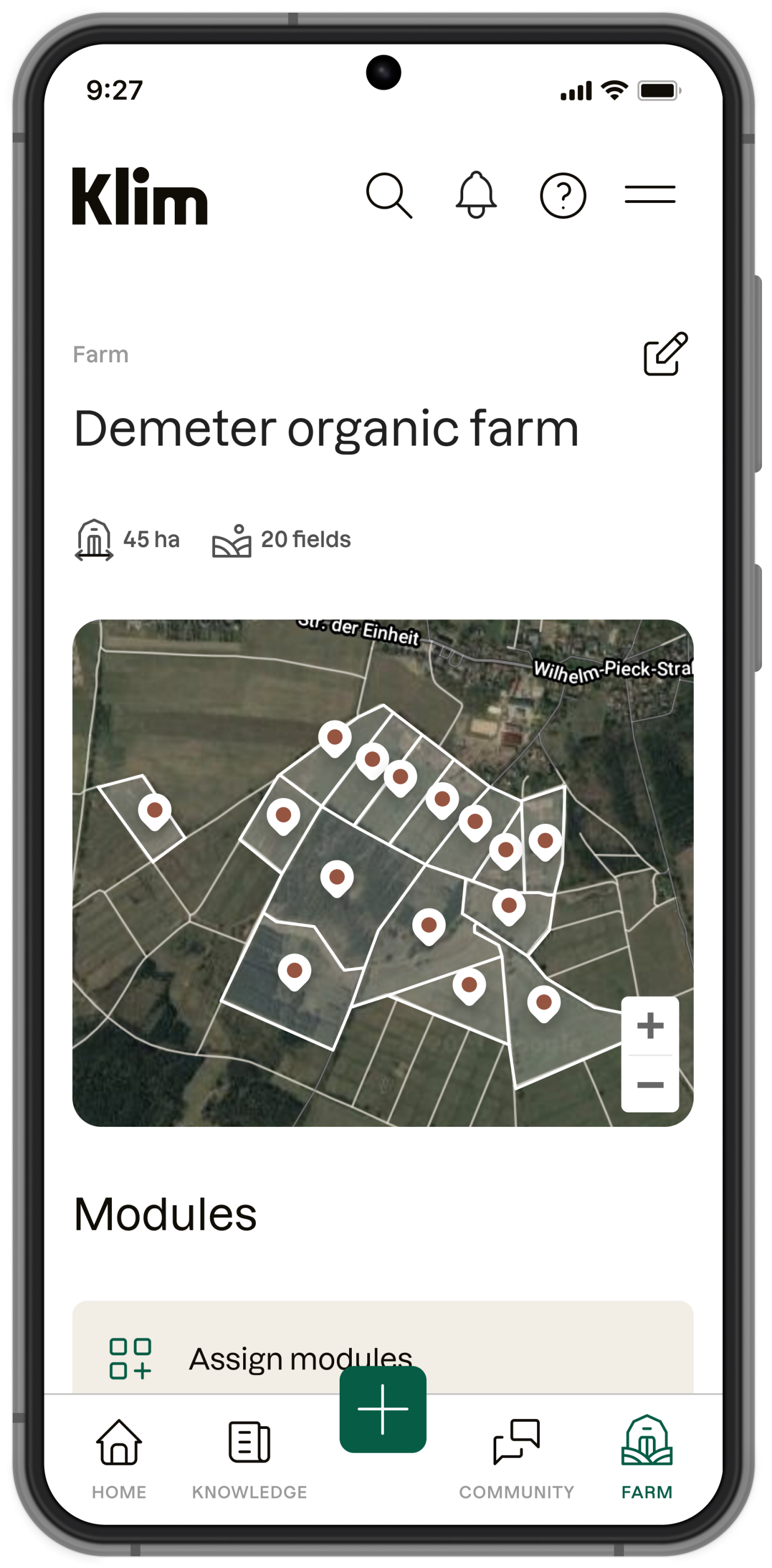
Greening Agri-Food: Regenerative Agriculture & Carbon Credits
Our portfolio company, Klim, is a great example of how innovative solutions can drive meaningful change towards sustainable supply chains.
Macro-Level Shift: Big Food Goes Green
In recent years, major food corporations like Walmart, Nestlé, and PepsiCo have committed substantial financial resources toward greening their supply chains. This shift is driven by several critical factors. First and foremost, the core business operations of these companies are increasingly at risk due to soil degradation, biodiversity loss, and the broader impacts of climate change. With consumer awareness growing around these issues, there is higher pressure on big food companies to adopt sustainable practices. Moreover, European Union’s CRCF regulation will be an enabler for companies to align with sustainability goals, making it imperative for them to invest in greener practices to remain competitive and compliant.
Carbon Credits & Greenwashing
The increased focus on sustainability in the agri-food industry has also led to a rise in greenwashing, where companies may exaggerate or misrepresent their environmental efforts. This macro environment presents both a challenge and an opportunity. Startups working on carbon offsetting software and marketplaces have emerged, allowing businesses to purchase credits that represent a ton of carbon emitted into the atmosphere. However, concerns over the legitimacy of some carbon credits have surfaced, with accusations of greenwashing causing several established corporations to shift away from offsetting. Additionally, accusations of the invalidity of carbon offsets damaged confidence in the mechanism, pushing businesses to demand more transparency. Despite these challenges, carbon credit startups saw significant funding in recent years, driven by incoming environmental regulations. In 2023 alone, the carbon pricing market generated $104 billion in revenue.
This context presents an opportunity for companies like Klim, our latest investment, which specialize in carbon credits and are well-equipped to provide authentic and transparent solutions that eliminate greenwashing. Klim goes beyond traditional offsetting and carbon credits by offering an insetting solution, directly working with farmers to reduce emissions within the supply chain itself. By providing verifiable carbon credits through transparent marketplaces and working directly with farmers, Klim can add real value to sustainability initiatives and support both food companies and the agricultural sector.
Klim’s Innovative Model: Empowering Farmers and Businesses
Klim’s business model centers on helping farmers adopt regenerative agriculture through its digital platform, which supports them in generating Emissions Reduction and Removal (ERR) credits. Unlike generic solutions, Klim offers tailored support, such as partially covering the costs of regenerative transformation, agronomic consulting, and region-specific workshops, ensuring solutions fit local soil and climate conditions. To ensure the highest quality standards, Klim cooperates with TÜV, a trusted certification body. Through the Klim app, farmers exchange best practices, fostering collaboration and community building. The platform has attracted over 3,500 farmers, covering more than 700,000 hectares, and involves over 20 partners from the food industry, amplifying its impact across the agricultural sector.
Insetting: A Path Towards Impactful Carbon Reduction
Insetting enables food companies to directly reduce emissions in their supply chains by investing in regenerative practices with farmers, moving away from the traditional carbon credit purchase model. In these respects, Klim plans to introduce enhanced features that will allow companies to fund data collection on carbon footprints and emission savings by commodity or field, creating a deeper alignment between agricultural practices and climate goals. By working closely with farmers and businesses, Klim’s approach fosters measurable environmental impact across the agri-food sector.
To further support their clients, Klim provides impact reports to help farmers and companies track progress and enhance transparency. This hands-on, transparent approach makes Klim’s solution highly valued in the food industry, where demand is strong for authentic, verifiable emissions reductions and soil organic carbon sequestration. As noted in research from BCG and the Environmental Defense Fund, the market favors credits that demonstrate clear, measurable outcomes, positioning Klim as a premium provider in this space.
Regenerative Agriculture: A Climate Solution for the Future
Regenerative agriculture is essential in the fight against climate change, helping to restore soil health, enhance biodiversity, and improve water retention. For farmers, these practices increase both carbon sequestration and crop resilience, leading to higher productivity and returns.
For large food companies, supporting these regenerative practices is key to achieving their sustainability goals while also securing a stable, eco-friendly supply chain. As consumer demand for greener practices continues to grow, businesses that invest in regenerative agriculture gain a competitive advantage by demonstrating genuine commitment to environmental change. Partnering with companies like Klim provides a pathway for businesses to align with these values, offering a transparent, verifiable approach to reducing their carbon footprint.
With our investment into Klim, we want to contribute to future-proof supply chains against the uncertainties of climate change, ensuring long-term viability.
To learn more about how Klim is making a real impact, explore their offerings and deepen your understanding of sustainability here!


